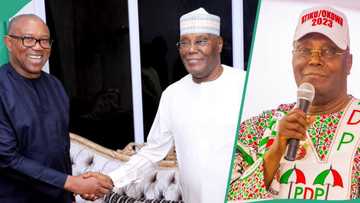Exploring the Gender Gap in Nigerian Politics: A Call to Action for Inclusive Governance In Nigeria
- An article by Segun Adeyemi addressed the gender gap in Nigerian politics despite strides towards equality
- Segun highlighted sociocultural norms, and economic barriers, among others hindering women's political engagement
- Segun pointed out that initiatives like the NWTF's advocacy, and legal actions, among others aim to address barriers and promote gender equality in Nigerian politics
In Nigeria, the gender gap in politics is a significant challenge reflecting broader representation and participation disparities. Despite progress towards gender equality in various sectors, women remain underrepresented in political leadership positions.
Addressing this issue, an Abuja-based journalist, Segun Adeyemi critically examined how this issue has perpetuated systemic inequality and stifled national progress.
Adeyemi, however, called for immediate and concerted efforts to foster a more inclusive political landscape in Nigeria.
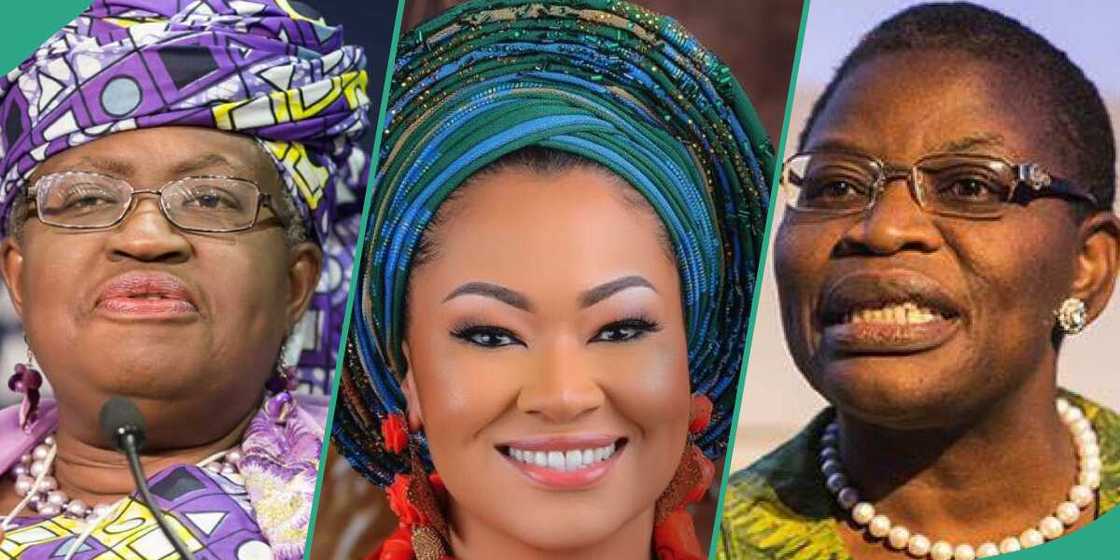
Source: UGC
In Nigeria, the gender gap in politics remains a significant challenge, reflecting broader disparities in representation and participation. Despite notable strides towards gender equality in various sectors, women remain underrepresented in political leadership positions.
The gender gap in Nigerian politics is a challenge and a pressing issue that demands immediate attention. This gap perpetuates systemic inequality and hampers the nation’s progress, underscoring the urgent need for concerted efforts to address it and foster a more inclusive political landscape.
Socio-Cultural Norms, Economic Barriers, and Institutional Biases
At the heart of the issue lies a complex web of socio-cultural norms, economic barriers, and institutional biases that hinder women’s political engagement. Cultural expectations often dictate traditional gender roles, relegating women to domestic spheres and undervaluing their contributions to decision-making processes.
Economic disparities further marginalize women, limiting their access to resources and networks necessary for political advancement.
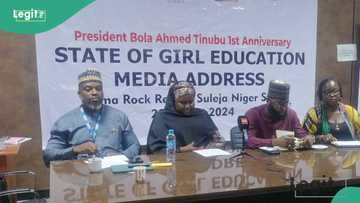
Read also
One year in office: Coalition lists 5 things Tinubu should do to address girls' education in Nigeria
Moreover, entrenched patriarchal structures within political parties and institutions perpetuate a cycle of male dominance, erecting formidable barriers for women aspiring to leadership roles.
Statistics and Rankings
Statistics underscore the extent of gender disparity in Nigerian politics. According to a report by the National Democratic Institute (NDI), women make up only about 6.7% of the National Assembly, significantly below the global average.
Similarly, data from the Inter-Parliamentary Union (IPU) ranks Nigeria 177th out of 181 countries regarding women’s representation in parliament.
These figures illustrate the underrepresentation of women in Nigeria’s political landscape and highlight the urgent need for transformative action.
Obstacles to women's political participation
Despite constitutional provisions guaranteeing equal rights and opportunities, women encounter numerous obstacles when seeking political office. Deep-rooted cultural biases often fuel discrimination and violence against female politicians, dissuading many from entering the political arena.
Cases of intimidation, harassment, and even physical assault have been reported, reflecting a troubling trend of gender-based violence in politics.
Additionally, limited access to campaign financing and party structures further marginalizes women, constraining their ability to compete on an equal footing with their male counterparts.
However, amidst these challenges, there are shining examples of women breaking barriers and making strides in Nigerian politics. Notable figures such as Ngozi Okonjo-Iweala, who served as Nigeria’s Finance Minister and later became the Director-General of the World Trade Organization, exemplify the potential for women’s leadership in driving meaningful change.
Grassroots movements and advocacy
Similarly, grassroots movements like the 35% affirmative action for women championed by the Nigerian Women Trust Fund (NWTF) and nine other civil societies with funding support from the Open Society Initiative for West Africa (OSIWA) now Open Society Foundations, have caused a paradigm shift, awakening stakeholders to the need to start paying attention to women and their place in governance.
This move earned women in Nigeria a crucial verdict at the Federal High Court on April 6, 2022.
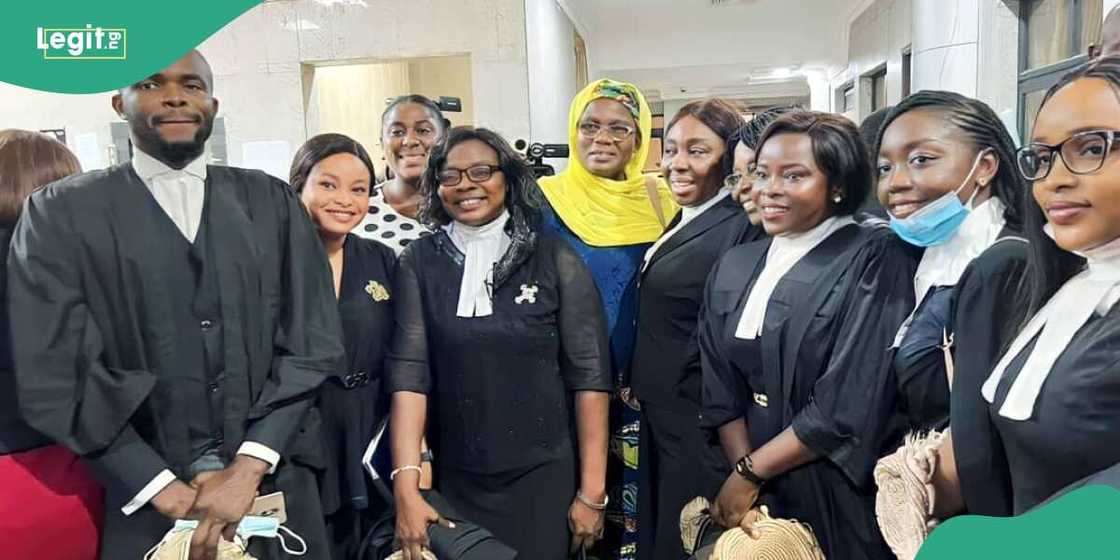
Source: Facebook
The verdict reads, “Dismantling barriers to women’s participation in public spheres has been achieved through progressive interpretation of municipal laws and international obligations and treaties.
“Formulating Policies based on sex, stereotyping, and feudal and patriarchal traditions will no longer be tolerated due to the supremacy of constitutional values.”
Aside from advocating more seats for women in governance, the NWTF released its National Gender Report to address the complexities and multifaceted gender dynamics prevailing within the country.
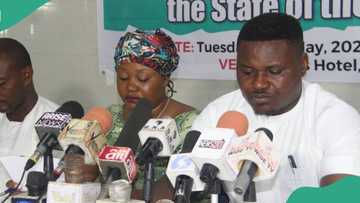
Read also
Rivers: Group hails Governor Fubara on masses-oriented policies, vows to defend him against enemies
The 198-page report examines the progress of women’s development in Nigeria over the past decade and evaluates the government’s role in promoting this advancement.
As a gender-focused organization, NWTF interventions include capacity building for women and girls nationwide.
Most recently, the NWTF embarked on a ‘Training of Trainers on Capacity Building and Skills Enhancement for young women in Ibadan, Oyo State!’ and a national mentorship program for young women across the country; to shapen their leadership skills and enhanced civic duties and interest in electoral matters respectively. After the training, the participants were issued certificates.
Addressing cultural barriers and changing societal attitudes
Moreover, addressing cultural barriers and changing societal attitudes towards women’s political roles is essential for fostering a more inclusive political culture.
Engaging men as allies in promoting gender equality and challenging stereotypes helps dismantle patriarchal norms and enhance inclusive governance at all strata. NWTF, through programs, has continually involved the male folks in its stakeholders' mapping and project implementations.
Furthermore, creating safe spaces and support networks for women in politics is vital for addressing gender-based violence and ensuring their full participation in the political process.
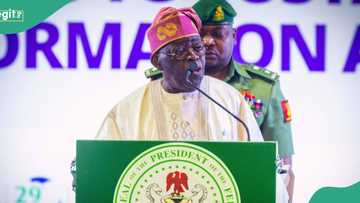
Read also
Tinubu’s one year in office: Full list emerges as APC Germany asks President to focus on 8 areas
Role of civil society organizations and stakeholders
Civil society organizations, the media, and other stakeholders also play a pivotal role in amplifying women’s voices and advocating for gender-inclusive policies.
By raising awareness, conducting advocacy campaigns, and holding policymakers accountable, these actors can help catalyze change and advance gender equality in Nigerian politics.
By addressing the root causes, implementing targeted reforms, and fostering a more inclusive political culture, Nigeria can unlock the full potential of women’s leadership and ensure that governance reflects the diversity of its population.
Embracing gender equality in politics is not just a matter of fairness; it is essential for building a more just, equitable, and prosperous society for all.
Why Nigeria needs more women in governance
Earlier, Legit.ng reported that Barr. Juliet Isi Ikhayere, a House of Reps candidate in the 2023 elections, highlighted the need for deliberate efforts to empower women politically, citing societal and cultural barriers as key obstacles.
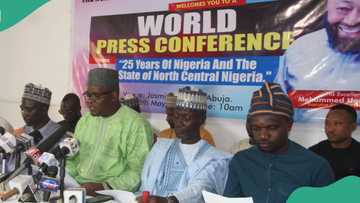
Read also
“State's now worth over $1bn agric investments”: Niger Governor Bago hailed over leadership style
Also, a former Kaduna senator Shehu Sani also spoke to Legit.ng on why the Nigerian government has failed to implement the law that reserves 35% of public offices for women.
PAY ATTENTION: Unlock the best of Legit.ng on Pinterest! Subscribe now and get your daily inspiration!
Source: Legit.ng


